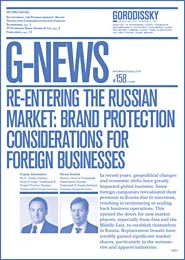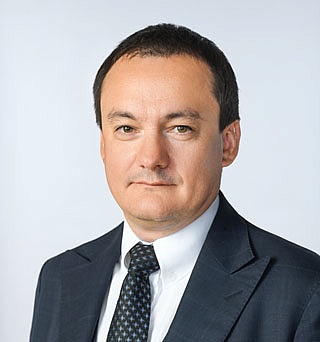Fighting the Pirates in Russia
22 May 2017Russia’s Anti-Piracy Law entered into force on August 1, 2013 and regulates a unique copyright protection mechanism allowing blocking of online resources involved in distribution of illegal video content, music, literary works, software and databases, broadcastings, and other copyright and related rights (except photographs) located in various information and telecommunication networks (including on the Internet).
It defines a wide range of people (the so-called “information intermediaries”) who may be found liable for reproduction, use, and distribution of illegal content on the Internet. Such intermediaries have been grouped into three categories: telecoms operators; hosting providers; and website owners.
The Law has also established the terms under which the aforementioned entities may be exempt from liability. In particular, the first category (telecoms operators) will not be liable for IP infringement if the following conditions are complied with:
- A person does not initiate the transmission of materials and does not select the recipient of the said materials;
- A person does not modify the said materials when providing communication services, except for modifications necessary to maintain the technology process for transmittal of materials; and
- A person was not and should not have been aware that the use of IP by the person who initiated the transmission of materials containing the corresponding IP was unlawful.
- A person was not and should not have been aware that the use of the corresponding IP contained in such materials was unlawful; and
- Upon receipt of a written warning from the rights holder in which a webpage and/or IP address where such materials have been placed is specified, a person has undertaken necessary and sufficient measures to cease the IP infringement.
The above rules shall also be applicable to the third category of information intermediaries (website owners).
Special Jurisdiction and Preliminary Injunction
The Law has determined that this category of IP disputes should fall within the jurisdiction of the Moscow City Court. Therefore, having found unlawfully distributed content on the online information resource, or a web link for downloading it, the rights holder shall be entitled to file a motion for preliminary injunctive relief with the Moscow City Court (the lawsuit must be filed afterwards).
After the issue of a preliminary injunctive relief, the Court will issue a writ of execution and pass it on to the claimant or, upon the claimant’s petition, forward it to the national IT and communications regulator (Roskomnadzor) for the purposes of initiating a blocking procedure.
Blocking Procedure
The blocking procedure works as follows:
- Having obtained the writ of execution, the rights holder or the exclusive licensee may approach Roskomnadzor with a request for measures to restrict access to the information (online) resource distributing the illegal content;
- Roskomnadzor shall within three business days determine a corresponding information intermediary (e.g., a hosting provider) and send it an electronic notice of infringement of the corresponding exclusive rights. The notice shall be in Russian and English, and shall contain all necessary details and the appropriate demand to take necessary steps to remove the illegal content;
- Within one business day from receipt of the notice, the hosting provider (or another information intermediary) shall inform the owner of the online information resource that it services of this particular notice. It must also notify the owner of the need to immediately remove the illegal content from the web and/or make certain arrangements to restrict the access; and
- Within one business day from the receipt of such notice the owner of the online information resource is obliged to remove the corresponding illegal content from the web.
In the event of the owner’s refusal to remove the infringing content from the web, or the owner’s omission to do so, the information intermediary shall restrict access to the online information resource within three business days. In case of failure to fulfill the demands, access to the information can be restricted within 24 hours by Roskomnadzor.
Permanent Blocking
Rights holders as well as exclusive licensees are allowed to block Internet resources permanently. The Anti-Piracy Law provides sanctions for the repeated infringement of copyright or related rights. Infringement will be deemed “repeated” if an effective earlier decision of the Moscow City Court has been issued and received at the request of the same claimant. Currently, 223 websites have been blocked permanently.
Upcoming Amendments
Practice shows that infringers against whom the court decisions are issued move their websites to “mirrors” (derivative websites) and continue infringement. In order to exclude such options for the infringers, the Russian Parliament has been considering a draft bill which envisages that where a court decision on permanent website blocking is obtained, IP rights owners may apply to the court to request an order allowing the blocking of such derivative websites within several hours without launching new proceedings.
Over the last couple of years, the Anti-Piracy Law has proved to be one of the most effective and useful enforcement tools helping different copyright owners combat pirated or illegal content on the Internet.
According to Roskomnadzor’s official statistics, approximately 27,000 IP rights have already been enforced, while around 1,500 web resources have been involved in proceedings due to application of the Anti-Piracy Law.
Для использования сайта Вы принимаете условия нашего Пользовательского соглашения.











